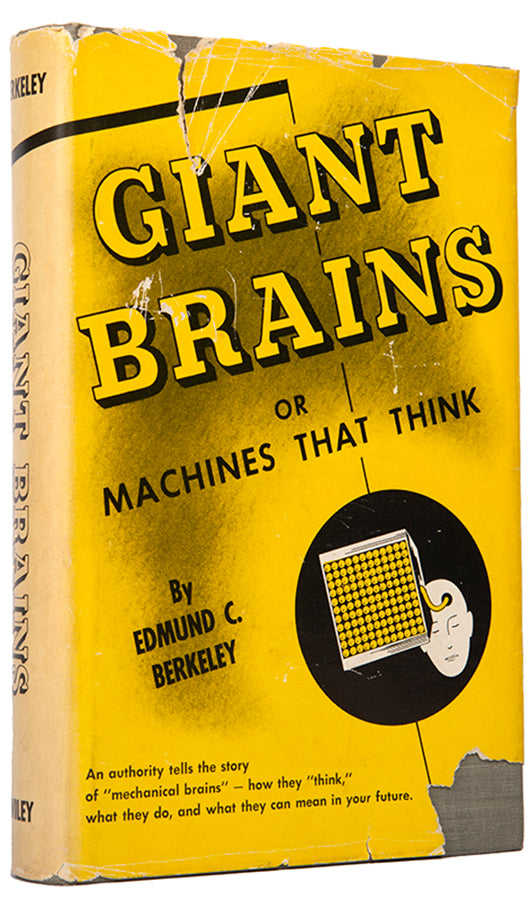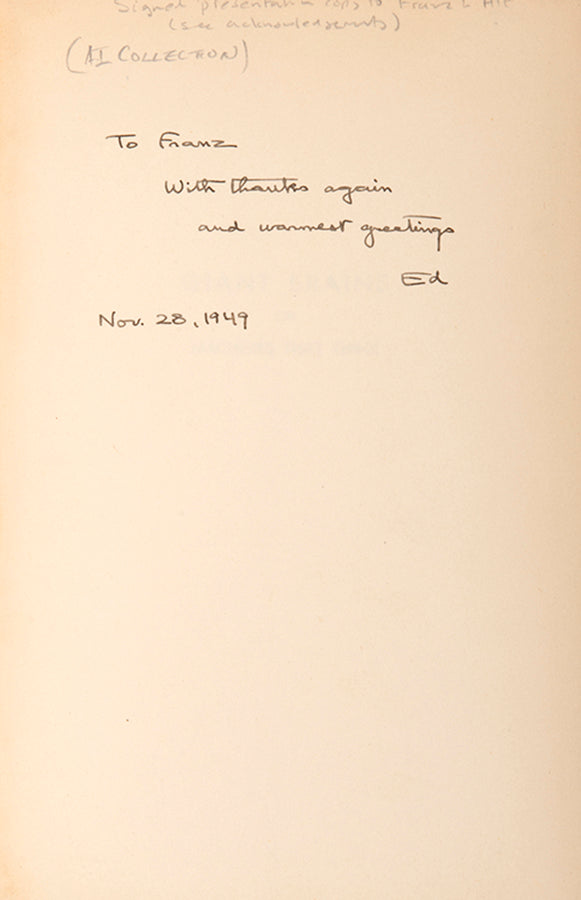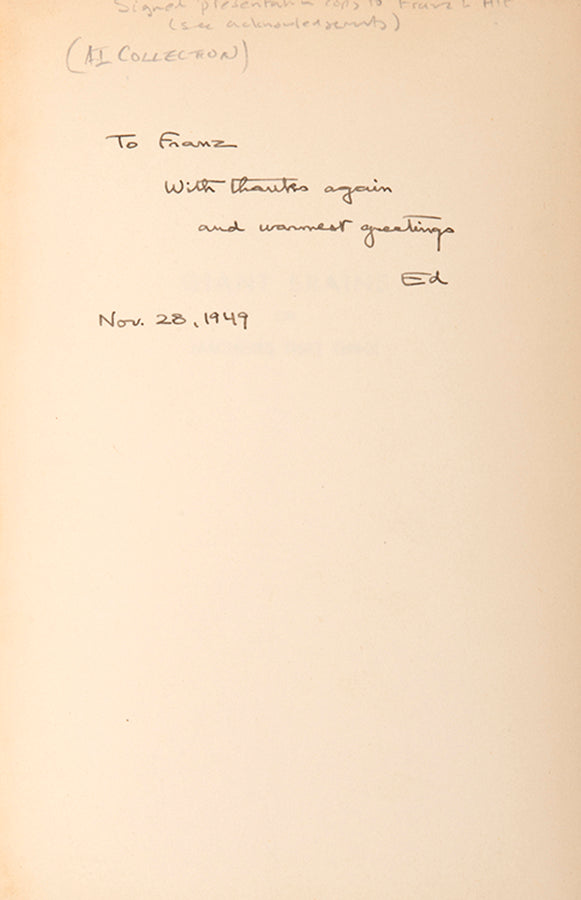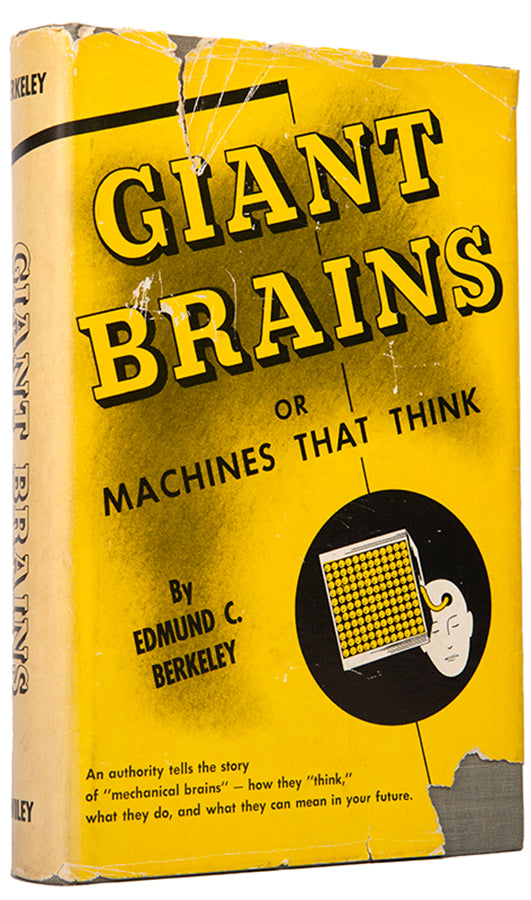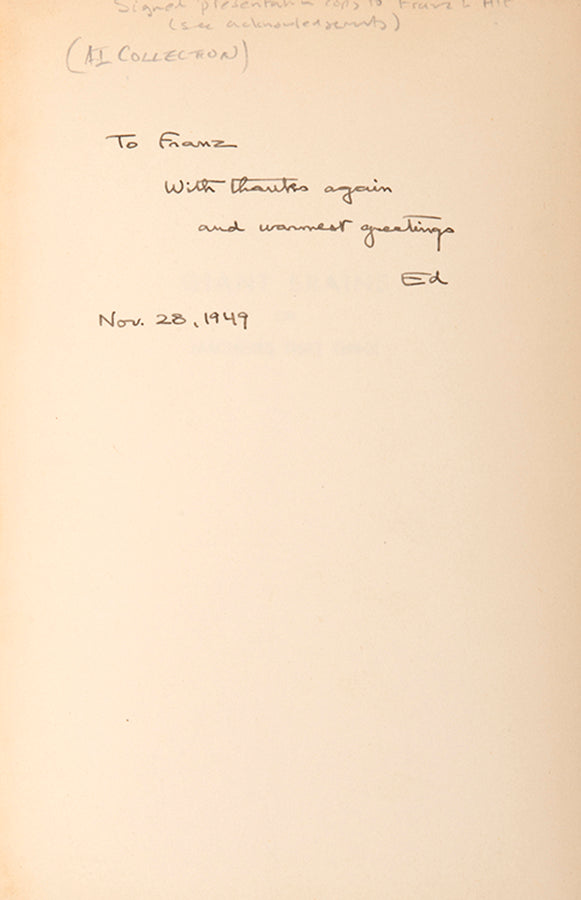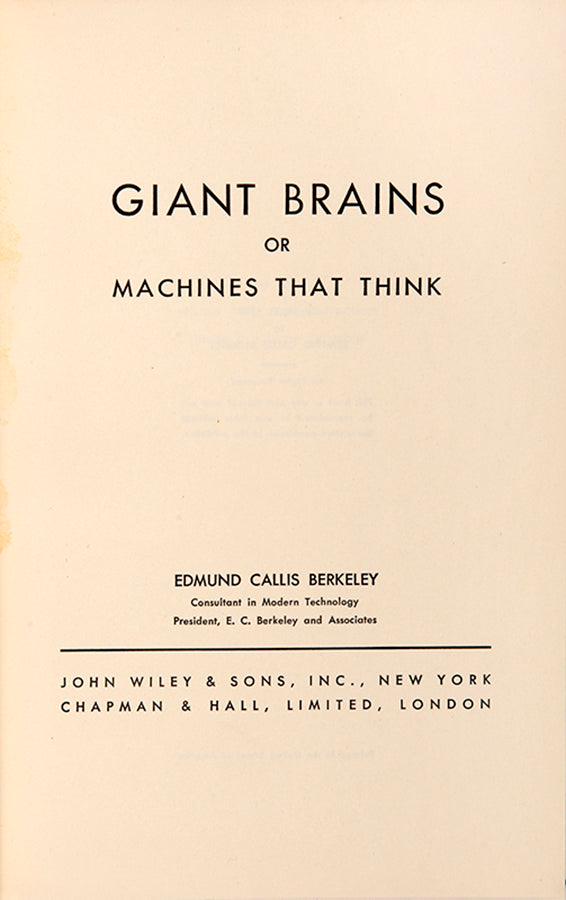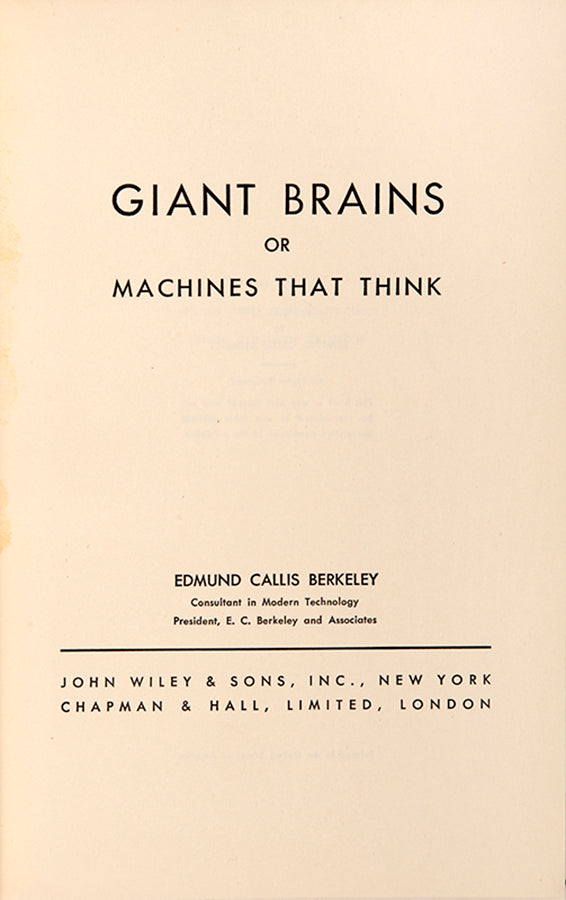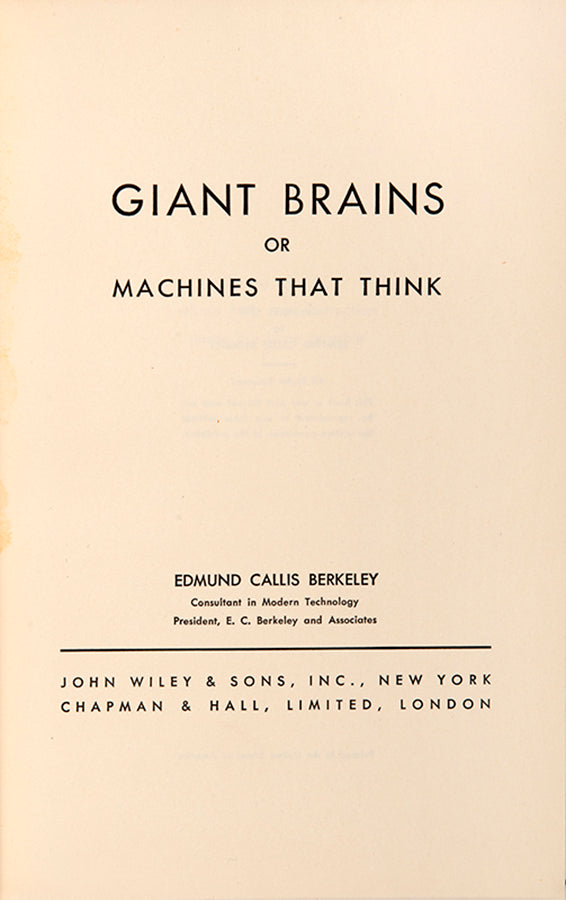[COMPUTING]. BERKELEY, Edmund C.
Stock Code 113475
New York & London, John Wiley & Sons, Inc. Chapman & Hall Limited, 1949
Edmund C. Berkeley (1909-1988) earned a degree in mathematics and logic at Harvard in 1930 and became familiar with early computing technology while using punch cards as an actuary. During the Second World War he was assigned to Howard Aiken's Harvard Computation Laboratory, where he worked on the sequential calculator project (MARK II). On returning to civilian life Berkeley participated in studies that led to Prudential's purchase of the Univac I, and in 1947 he founded the Eastern Association for Computing Machinery, renamed the Association for Computing Machinery a year later. It was the first, and remains the largest and most influential, international learned society for computing.
Berkeley's primary career continued to be actuarial, but he also created and sold his own relay computers and small robots as educational kits and founded the journal Computers and Automation. 'In 1949 he wrote the first carefully crafted and widely accepted popularization of computers, Giant Brains, Or Machines that Think, a book that fastened the "brain" name on computers and presented a somewhat optimistic view of what computers could do or would do soon... Giant Brains was followed in 1956 by Computers-Their Operations & Applications, and 13 other books that had total sales in excess of $110,000' (IEEE obituary). The third chapter, 'A Machine That Will Think' focused on his design for a simple model mechanical brain named Simon, and was intended 'to introduce a general audience to the fundamentals of computing circuits used in very large mechanical brains' (Guide to the Edmund C. Berkeley papers, Computer History Museum).
The recipient of this copy, Franz Alt (1910-2011), was an Austrian Jew who made important contributions to econometrics and to early computers, specialising in their 'applications in science, engineering, management and data processing. He also dealt with information retrieval, automatic language translations, numerical analytical operations research, econometrics, and geometry of metric space' (Museum of the Jewish People). After fleeing the Nazi annexation of Austria in 1938 he emigrated to the US and worked in high positions at the Econometric Institute in New York, the Aberdeen Proving Ground's Ballistic Research Laboratories, the Computation Laboratory at the National Bureau of Standards, and the Information Division of the American Institute of Physics. Together with Berkeley he was one of the founders of the Association for Computing Machinery, serving as its president between 1950 and 1952 and as editor of its journal during the 1950s. Alt is first on the list of those thanked in the acknowledgements for, 'careful reviews and helpful comments'.
First edition, inscribed presentation copy; 8vo; contents fresh; original grey cloth, titles to spine and upper board in dark blue, a very good copy in the chipped and creased jacket with faded spine panel; 270pp.
Couldn't load pickup availability
About us
About us
Shapero Rare Books is an internationally renowned dealer in antiquarian & rare books and works on paper.
Our Bookshop and Gallery can be found in the heart of Mayfair at 94 New Bond Street, where most of our stock is available to view and on public display.
We exhibit at major international art fairs, including TEFAF (Maastricht and New York), Frieze Masters, Art Miami and Masterpiece London, as well as antiquarian & rare book fairs including New York, Paris, London, Los Angeles, San Francisco and Hong Kong.



